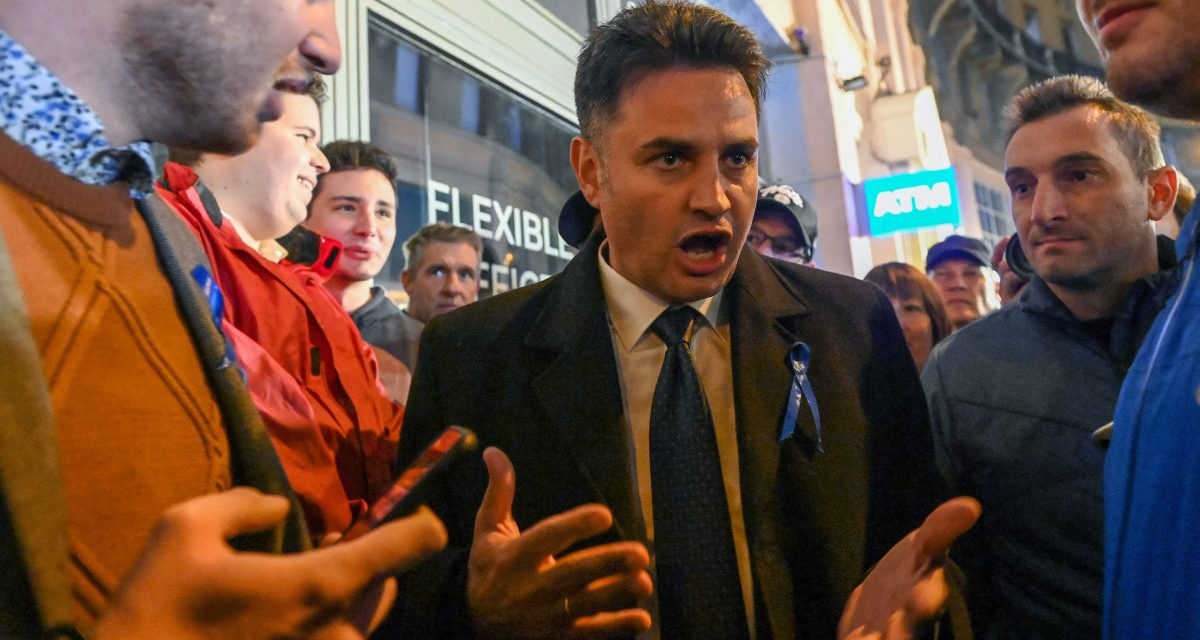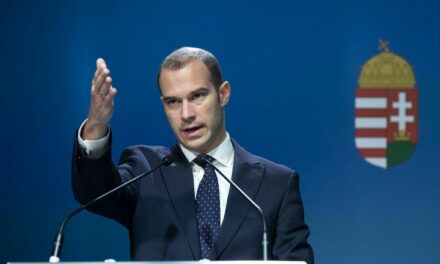Be a little cultured! said the well-rehearsed ATV host to one of the participants in the Tranzit debate. The comment caused great excitement in the audience.
It was the end of summer, the Tihany bay was swimming in mist, white sails could be seen in the distance. At the thought expo, everyone, from opposition and government party politicians to public figures, was able to represent their position in front of the seriously interested crowd with a Balaton relaxedness, but with sufficient professional preparation and culture. Our hero stood alone in his solemnly buttoned dark suit with a blue ribbon on his lapel. He also emphasized the seriousness with his writing folder, sometimes jotting down a stray thought on it.
This was the only time when someone, a government-party politician, the unsuspecting István Hollik, stood up for a debate against Péter Márki-Zay, who was still prime minister-candidate-candidate. At that time, no one thought that this man could not be argued with. Not because he is right, but because he lacks everything that is essential for cultured communication. He has a rather narrow vocabulary with negative connotations (lie, steal, rob, corrupt, coward, criminal, thief, party soldier, agent, propagandist, etc.), which is driven by a visceral hatred coming from some unfathomable depth.
He also has the well-known, fact-free, slanderous argument system from the opposition narrative, which he delivers with sickening monotony: "Hungary is the poorest and most corrupt country; the unlimited power of the party-state out of self-interest has robbed and sold off the healthcare sector; they took away the future of young people, tens of thousands of Hungarians died in covid", etc.
Their regime change would make the helicopter-flying and yachting Fidesz political elite accountable, disrupt the entire civil war, and bring the long-desired social peace and justice. He has a long list of Fidesz crimes, he claims, and I don't even doubt that. I can see him taking notes of his allies' political platitudes, parliamentary speeches and opposition press headlines, and then digesting them without criticism or further study. The way they were taught in political training. Like a communist agitator who replaces professional knowledge and competence with aggression and threats.
The audience had a good time at the Tranzit debate, it was all like a farce. A farce, whose protagonist steadfastly asserts the impossibility, then the opposite, who must be told which of his two contradictory statements is true. Who doesn't even notice that they become ridiculous when they talk out of context. The one who throws snakes and frogs at everyone who sees the world differently than he does. Those who should be warned that the announcement of the list of "blood judges" is typical of dictatorships, just like the opposition draft to change the Basic Law. So what now? What will happen to the much talked about rule of law?
The small-town mayor has already shown his true self during the Transit debate. In accordance with the director's instructions, he wanted to give the impression of a serious, conservative person - hence the dark suit, tie even in the heat, taking notes - who is Christian, right-wing, and even before the Fidesz people, even Viktor Orbán. Anyway, he has more children, seven in number! I would argue with him a bit about Christianity, because a person is born a Christian or not, and his faith is not based on imagining himself as the Messiah.
Anyway, I wouldn't sit down to argue with him either, because you can't have a dialogue with an aggressive and arrogant person. He was not able to control himself even during this one-off debate, he constantly interrupted the other, praised, scolded, led, hated, and of course not even half of what he claimed was true. To use his words, he lied constantly. When István Hollik confronted him with facts and data, he became more and more irritated, the suppressed anger in him was clearly visible on his face and pearly forehead. Then, just like in the pub, he shouted to the spectators who saw him, come out, whoever has something wrong with him, argue in front of the microphone, be brave there!
I am serious, I would not have believed then that this political adventurer would be the prime ministerial candidate of the opposition alliance. Sometimes I think about how Gergely Karácsony, who was more likely, could convince him to back down, what kind of negotiation or violence was going on in the background, what suddenly changed the mayor's intentions? Who, how and why interfered with the final result of the primary election? How could those who voted for him, including many educated, intelligent people, think that Márki-Zay is suitable for leadership? Have you imagined what this man would be like as Prime Minister, how he would represent (Everyone's) Hungary at home and internationally? How would you negotiate in the European Council, Berlin, Brussels or Moscow?
Since then, I have listened to Márki-Zay live a few more times, in the countryside, in the capital and in uncut broadcasts, so that I can form an opinion about him based on my own experience. His repertoire of hatred has increased over the past few months, he insults the happy and unhappy, slanders and asserts incompetence with complete determination (ie he lies like a stream of water) in front of his ever-growing audience. I don't know how much the people present understand from the superficial and false flood of words that are being thrown at them?
In any case, he makes good use of Gustave Le Bon's century-old thesis on mass psychosis, repeating lies wrapped in simple messages until everyone believes them. Le Bon's theorem has been tested by many politicians who aspire to power over time, and the truth of the theorem has always been proven. It is necessary to find the target audience, people who are offended for some reason, who are envious of others, dissatisfied and those who simply see the world only darkly.
Márki-Zay's violent, narcissistic personality is liked by many, they see our man based on the image spread: the family-oriented, Christian right-wing Messiah who will bring them a Hungary of love and justice. Others consider him an idiotic crook, a runaway, a loose ship's cannon who should be stopped in time, before he brings great trouble to the country.
For me, Bertolt Brecht's eternal work, Stop Arturo Uit! I always think of him. P.S. At the beginning of the play, the mustachioed Chicago cauliflower king is just a nervous, nervous guy, but as the story progresses, as his gang of gangsters grows and thus his power, he becomes more confident and more and more dangerous. It's a shame that this symbolic story is not performed in Hungarian theaters. It would be very instructive because it has a current political message.
The author is a historian
Source: MH
Featured image: Mandiner













